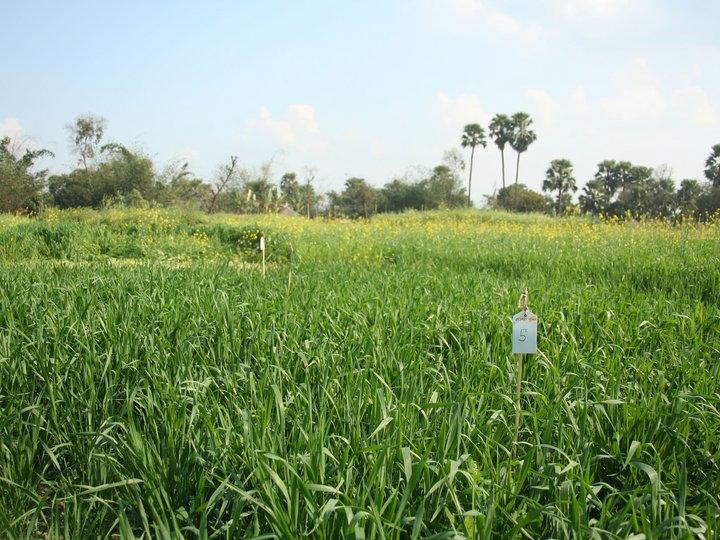Giving farmers choices: Seeds for Needs

The idea behind ‘Seeds for Needs’ is simple: farmers who have access to more information and a wider range of crops and varieties can make better decisions based on their knowledge of local conditions. Find out more in this 2013 Annual Report story
“Earlier we used to have only a few choices in wheat and rice farming. With Bioversity, we came to know how many types are available for our use and some of them are really performing better than our regular ones,” says one Indian farmer, describing how Bioversity International’s ‘Seeds for Needs’ initiative has introduced him to more crop varieties. The idea behind ‘Seeds for Needs’ is simple: farmers who have access to more information and a wider range of crops and varieties can make better decisions based on their knowledge of local conditions – and can better cope with climate variability.
In recent years, the initiative has adopted a crowdsourcing approach, where local farmers become citizen scientists. Each farmer grows a different combination of three varieties drawn from a broader set of ten. The farmer then ranks them according to different characteristics such as early vigour, yield and culinary quality. Researchers then combine the rankings and share the results with the farmers so that they can identify the best varieties for their conditions and preferences. The approach was launched in 2011 in India with 30 farmers. News spread by word of mouth, and there are now over 5,000 citizen farmers in the country, joining another 3,000 around the world.
Capacity strengthening is another key aspect of the initiative. Farmers are trained in data collection, cultivation practices and seed saving techniques. As of 2013, the initiative is also training partners and extension agents in GIS climate modelling. The year also marked the launch of iButtons to measure local temperature and humidity in farmers’ fields to correlate with crop performance (such as frost or heat resistance). Finally, ‘ClimMob’, a computer program that analyzes data and processes the feedback from and for farmers, will be released in 2014.
Both men and women are involved in the research, with household surveys and focus groups being conducted together and/or separately. In most cases, women involved are responsible for their own trials or are part of a women’s group.
Four ‘Seeds for Needs’ policy briefs were published in 2013 for East Africa, with major results and policy recommendations. Five countries – Cambodia, Colombia, Honduras, Laos, Rwanda and Uganda – joined the initiative in 2013.
This work contributes to the CGIAR Research Program on Climate Change, Agriculture and Food Security (CCAFS).
Read more Annual Report 2013 stories.
